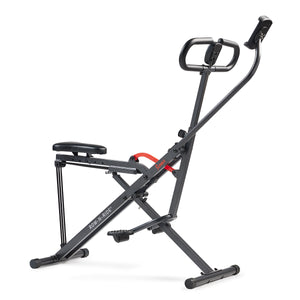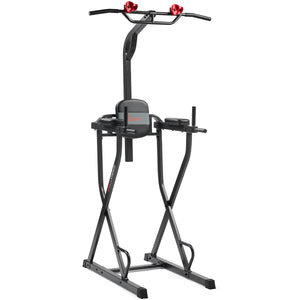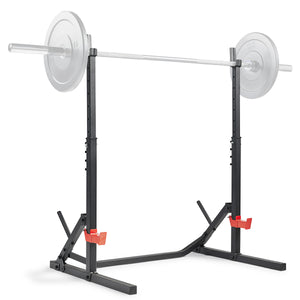Choosing what to eat before a workout can often feel like a daunting task. Questions swirl around in your mind: What should I eat? Should I eat anything at all? How much is too much? The uncertainty can be overwhelming, and it’s easy to consider skipping pre-workout nutrition altogether. Personally, I’m not a fan of exercising on a full stomach, and there are times when the temptation to skip my pre-workout meal seems to win out. However, after years of experience and trial and error, I’ve discovered that eating before a workout can offer numerous benefits and significantly enhance your performance and results.
In this article, I’ll share practical tips and simple strategies to help you fuel up effectively before your next workout. By understanding the right types of food and the optimal timing, you can maximize your energy, improve your performance, and make the most of your exercise routine. Let’s explore how you can prepare your body for a successful workout and achieve your fitness goals more efficiently.
Strength Training Fuel
My favorite way to work out is to strength train. Lifting weights demands that your body is well-fueled, so I opt for a balanced meal about two hours before my workout. This timing allows my body to properly digest the food, ensuring that I have enough energy without the discomfort of a heavy stomach, bloating, or indigestion during my session. Addressing these issues can prevent discomfort from cutting into your workout time and hindering your ability to focus on lifting heavier weights.
Proper fueling is crucial, and finding the right balance often involves some trial and error. I recommend incorporating a protein source and a carbohydrate source that you know your body can digest well before your workout. To optimize performance, aim for approximately 15-25 grams of protein and 30-70 grams of carbohydrates in this pre-workout meal. The exact amount can vary depending on your body type, but having a higher carbohydrate intake before your workout can provide the extra energy needed for a high-quality performance in your strength training session.
Why is performance so critical? It can significantly impact your overall results. If you find yourself in a plateau with strength training, where you're lifting the same weight for the same reps without progress, it may help to introduce a pre-workout meal to help you break through and achieve your lifting goals. Enhancing your performance through proper nutrition can lead to better muscle growth and continued progress.
Choosing a protein source and carbohydrate source that are both easy to prepare and, most importantly, easy to digest is key to an effective pre-workout meal. Let’s start with carbohydrates, as they are your body's primary energy source. Opt for complex carbohydrates a few hours before your workout. These are digested more slowly than simple carbohydrates, and will provide sustained energy throughout your session. This ensures that your blood sugar levels remain stable and rise at a steady rate. Complex carbs can also be high in fiber, vitamins, and minerals that will cater to a healthier gut and metabolism. Examples of complex carbohydrates include: rice, oats, sweet potatoes, broccoli, blueberries, raspberries, apples, russet potatoes, beans, lentils, and pastas.
Although there’s much debate about carbohydrate timing, the two-hour recommendation is primarily for digestion purposes. During exercise, your glucose levels are depleted, so having plenty of carbohydrates helps quickly replenish these levels and maintains your workout momentum.
Pairing your carbohydrate choice with a protein source can help release glucose more gradually, sustaining your energy levels throughout your workout. Additionally, protein supports muscle maintenance and protein synthesis during exercise. While carbohydrates provide the immediate energy needed for a workout, protein fuels your muscles and helps stabilize blood sugar levels. Protein options to consider include fish, chicken, beef, turkey, beans, and eggs. Integrating these into your pre-workout meal not only ensures stable blood sugar but also contributes to your overall protein intake for the day.
Cardio Fuel
Strategizing your pre-workout nutrition for cardio sessions differs from what you’d choose for strength training. For high-impact workouts like cardio, it's crucial to ensure your glycogen levels are well-stocked so you can perform at your best and sustain your energy. The term “carb-load” is often associated with athletes and runners because maintaining high glucose and glycogen levels is essential for optimal performance. Given the intense energy demands of cardio, carbohydrates should be your primary focus before a session. Consuming too many fats or proteins beforehand could delay glucose release, which is counterproductive for cardio.
Timing is also essential. If you're eating 1-2 hours before your cardio session, aim for a balanced meal that includes protein, similar to what is recommended for strength training. However, if you haven't eaten a substantial meal since the night before, opt for simple carbohydrates to give your body a quick glucose boost. Simple carbohydrates will be broken down at a quicker rate in the body which will make blood sugar levels rise faster. High sugary foods are considered to be simple carbs, such as, candies, pastries, sodas, and different types of desserts. To ditch the processed sugar load while still getting benefits from a quick glucose rise and instant energy source, be sure your simple carb decisions are more nutrient dense. Simple carbohydrate examples to choose include bananas, fruits, yogurt, smoothies, and honey. Since, simple carbohydrates contain much less fiber than a complex carb, be sure you are utilizing them about 15 minutes before your workout; otherwise choose a complex carbohydrate option listed previously. This will help you are maintain healthy blood sugar levels and you will get more bang for a buck when it comes to food choice.
Fuel for Success
Eating before a workout not only enhances performance but also supports a healthier metabolism, making this an important meal for weight loss and achieving physique goals. So, it's important to prepare and fuel up before each workout. Equally crucial is post-workout nutrition. After exercising, it's vital to refuel to aid recovery. Aim to eat a meal containing a protein source within two hours after your workout. Opt for nutrient-dense options like Greek yogurt, cottage cheese, protein shakes, sweet potatoes, eggs, rice, quinoa, and fruit. A balanced post-workout meal should ideally consist of 30% protein, 30% fats, and 40% carbohydrates.
Finally, don't overlook hydration. Drinking water before, during, and after your workout is essential for replenishing lost fluids and supporting overall performance.


1. MediLexicon International. (n.d.). How often should you work out for weight loss and muscle gain?. Medical News Today. https://www.medicalnewstoday.com/articles/how-often-should-you-work-out-2#choosing-a-workout. Accessed 9 August 2024.
2. What is carb timing and can it boost your workout performance?. EverydayHealth.com. (n.d.). https://www.everydayhealth.com/fitness/what-is-carb-timing-and-can-it-boost-your-workout-performance/. Accessed 9 August 2024.
3. Ormsbee, M. J., Bach, C. W., & Baur, D. A. (2014, April 29). Pre-exercise nutrition: The role of macronutrients, modified starches and supplements on metabolism and endurance performance. Nutrients. https://www.ncbi.nlm.nih.gov/pmc/articles/PMC4042570/. Accessed 9 August 2024.

























Add Your Name & Email
Please enter your name and email to continue.We won’t display your email publicly.